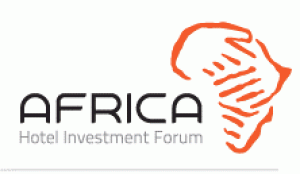AHIF to confront difficult issues

Jonathan Worsley, Chairman of Bench Events, the company organising the Africa Hotel Investment Forum (AHIF) this September 25-26 in Nairobi, has promised that the conference will discuss ‘all the relevant issues’ that confront the hotel industry and uncomfortable facts will not be ‘swept under the carpet’.
He says: “AHIF is bringing the top hoteliers, hotel investors and chains together to talk openly about the opportunities in Africa. To be properly useful, we need to facilitate dialogue about the challenges as well as the opportunities – and if our discussions prompt actions to address local issues, our event will have made a worthwhile contribution.”
His statement was backed up by CNN TASK Group consultant Anita Mendiratta who will be hosting two sessions. She said: “In the discussions I will be moderating, focus will be on finding solutions for industry growth. Difficult issues will be explored, hard questions will be asked, and unique perspectives will be shared, so we can discover what we really want, and need, to know to move the industry forward.”
Andrew McLachlan, Vice President Business Development, Africa for Carlson Rezidor and one of the most successful deal-makers in the hotel industry in Africa, is willing to identify several business practices that are hindering hotel development. Fresh from opening a new hotel in Mozambique and concluding two new hotel deals in Benin and South Africa, he has criticised business practices that are common across Africa and prevent everyone for making money. In six words, they are: poor quality, poor governance and poor information.
He says: “There are many obstacles to doing business in Africa…bureaucratic red tape, government interference, fluctuating currencies, slow construction, poor infrastructure, lack of experienced professionals, lack of quality information in most markets that makes benchmarking very difficult and corruption – the latter being as much the fault of non-Africans!”
ADVERTISEMENT
One international hotel chain describes a recent example of what it sees as corrupt practices by government officials. A hotel development project in central Africa was completely designed. When it went to the city for planning approval, certain corrupt city officials wanted a stake in the project. The local promoter refused and within 30 days the city presented a new master plan road system with a future road planned right through the middle of the site! This action was a result of the project promoter not agreeing to give away a shareholding in return for his plans being approved. The project is still alive, however it had to go back to the drawing board and be redesigned. Instead of there being a 260 room hotel with major conference facilities; a much smaller, more compact 180 room hotel on half the site was proposed. The hotel chain has since concluded that in future it will be wary of proposing landmark hotels with international branding on plans and presentations for fear of attracting ‘too much attention’.
Whilst hotel development in Africa has its difficulties, the opportunities still outweigh the challenges, as evidenced by the statistics that pipeline growth in Sub Saharan Africa is over 40% up on last year and recent news that China is to offer Africa $20 billion in fresh loans for infrastructure projects over the next three years, doubling a pledge made in 2009.
Andrew McLachlan concurs and says that as time moves on; his company is getting ever better at figuring out strategies to tackle the unique challenges presented by Africa. Carlson Rezidor recently took over the Okoume Palace Hotel in Libreville, Gabon. It struck a deal and took over the operation within 7 days of the first telephone phone call and within 60 days thereafter had concluded a hotel management agreement to operate the very first dual branded Carlson Rezidor hotel on that continent. He says: “I do not think we would have been able to achieve all this if we didn’t have a dedicated team on the ground in Africa in operations, technical and development plus the full support of the executive board in Brussels.”
At AHIF, there will be a session dedicated to doing deals in Africa at which leading investors, financiers and operators talk about what it takes before they put their money or brand on the table, where they see the opportunities and what they’re doing to tackle the obstacles.

